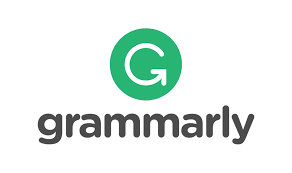Analisis Kebutuhan Modul Matematika untuk Meningkatkan Kemampuan Pemecahan Masalah Siswa SMP N 4 Batang
DOI:
https://doi.org/10.57176/jn.v2i1.38Keywords:
kemampuan pemecahan masalah , modul , problem solvingAbstract
Pemecahan masalah merupakan suatu usaha untuk menyelesaikan masalah matematika menggunakan pemahaman yang telah dimilikinya. Siswa yang mempunyai kemampuan pemecahan masalah rendah akan mengalami kesulitan ketika menyelesaikan masalah matematika. Siswa kesulitan ketika menyelesaikan masalah matematika khususnya pada soal cerita yang memnyababkan rendahnya kemampuan pemecahan masalah siswa. Bahan ajar yang digunakan di sekolah juga belum memfasilitasi untuk melatih kemampuan pemecahan siswa. Penelitian ini bertujuan untuk mengetahui bagaimana kebutuhan modul matematika berbasis problem solving untuk meningkatkan kemampuam pemecahan masalah siswa. Penelitian ini menggunakan metode penelitian kualitatif. Subjek penelitian adalah guru dan siswa SMP N 4 Batang kelas IX pada tahun ajaran 2021/2022. Teknik pengumpulan data yang digunakan dalam penelitian ini adalah observasi, angket, dan wawancara. Teknik analisis data dalam penelitian ini adalah analisis deskriptif kualitatif dengan menggunakan analisis Miles dan Huberman. Hasil penelitian menunjukan bahwa kemampuan pemecahan masalah siswa masih rendah yang dikarenakan siswa sulit memahami soal berbentuk cerita dan sulit menerapkan rumus yang diberikan. Bahan ajar yang digunakan belum dapat meningkatkan kemampuan pemecahan masalah siswa. Problem solving merupakan salah satu motode yang dapat memfasilitasi siswa dalam berlatih memecahkan maslah karena didalamnya juga menjelaskan langkah-langkah/prosedur pemecahan masalah sehingga kemampuan pemecahan masalah siswa meningkat. Oleh karena itu dibutuhkan modul yang dapat meningkatkan kemampuan pemecahan masalah yaitu modul berbasis problem solving. Penelitian ini diharapkan dapat dilanjutkan menjadi pengembangan modul berbasis probelm solving agar dapat meningkatkan kemampuan pemecahan masalah.
Problem solving is an attempt to solve mathematical problems using the understanding they already have. Students who have low problem-solving skills will have difficulties in solving mathematical problems. Students have in solving mathematical problems, especially in story problems which cause students' low problem-solving abilities and the teaching materials used have not facilitated students' problem-solving skills. This study aims to determine how the need for problem solving-based mathematics modules to improve students' problem-solving skills. This study used qualitative research methods. The research subjects were students of SMP N 4 Batang class IX in the academic year 2021/2022. Data collection techniques used in this research are observation, questionnaires, and interviews. The data analysis technique in this research is descriptive qualitative analysis using Miles and Huberman analysis. The results showed that students' problem-solving abilities were still low because students had students' difficulties in understanding the story-problem questions and applying the formula. The teaching materials used have not been able to improve students' problem-solving abilities. problem solving is a method facilitating students to practice problem solving skill, because it includes the steps or procedures in problem solving. so, it can increase students' problem-solving skills. Therefore, we need a module that can improve problem solving skills, namely problem-solving based modules. This research is expected to be continued into the development of problem solving-based modules in order to improve problem solving abilities.
References
Astuti, A. D., & Prestiadi, D. (2020). Prospek Pendidikan Nasional Pasca Pandemi Covid-19" Fakultas Ilmu Pendidikan-Universitas Negeri Malang. 129–135. https://belajar.kemdikbud.go.id/
Astuti, S., Ariswoyo, S., & Salayan, M. (2020). Pengembangan Bahan Ajar Berbasis Problem Solving Untuk Meningkatkan Kemampuan Pemecahan Masalah Matematika. Jurnal MATEMATICS PAEDAGOGIC, V(1), 98–113.
Fitriandini, V., Anriani, N., & Mutaqin, A. (2019). Persepsi guru matematika di Kabupaten Pandeglang terhadap buku siswa kurikulum 2013 menurut kriteria Bell. Prosiding Seminar Nasional & Call For Papers, 1, 606–615.
Hilyani, N. H., Pitriani, & Malalina. (2020). Analisis Kemampuan Pemecahan Masalah Matematis pada Siswa Kelas VII SMP Negeri 57 Palembang Materi Aritmatika Sosial. Sigma, 12(2), 125–132.
Husna, & Burais, F. F. (2018). Penggunaan Problem Solving Untuk Meningkatkan Kemampuan Pemecahan Masalah Matematis Siswa Smp. Jurnal Peluang, 6(2), 1–7.
Ilmi, A. R. M., & Puspita, E. (2022). Efektifitas Pembelajaran Berbasis Masalah Untuk Meningkatkan Hasil Belajar Peserta didik SMA Pada Era Pembelajaran Tatap Muka Terbatas. Jurnal Rekayasa, Teknologi, Dan Sains, 6.
Kharizmi, M. (2015). Kesulitan Siswa Sekolah Dasar Dalam Meningkatkan Kemampuan Literasi. Jurnal Pendidikan Almuslim, II(2), 11–21. file:///D:/jurnal skripsi/literasi 2019 (jurnal) (2).pdf
Lubis, J, N., Panjaitan, A., & Surya, E. (2017). Analysis Mathematical Problem Solving Skills of Student of the Grade VIII-2 Junior High School Bilah Hulu Labuhan Batu. International Journal of Novel Research in Education and Learning, 4(March-April), 131–137.
Niat, Y., Sinaga, B., Sihombing, H., & Surya, E. (2017). Development of Mathematics Module Based on Metacognitive Strategy in Improving Students’ Mathematical Problem Solving Ability at High School. Journal of Education and Practice, 8(19), 73–80. https://www.researchgate.net/publication/318983738
Rahmadani, H., Roza, Y., & Murni, A. (2018). Analisis Kebutuhan Bahan Ajar Matematika Berbasis Teknologi Informasi di SMA IT Albayyinah Pekanbaru. JURING (Journal for Research in Mathematics Learning), 1(1), 91. https://doi.org/10.24014/juring.v1i1.5230
Setiyowati, L., Wijonarko., & Sulianto, J. (2018). Penerapan Metode Problem Solving Model Polya Terhadap Kemampuan Memecahkan Masalah Pada Materi Operasi Hitung Campuran Kelas 3 SD. Jurnal Sekolah (JS), 2(2), 32–37.
Sulistyaningsih, A., & Andriyani. (2019). Analisis Kebutuhan Modul Berbasis Problem Based Learning Untuk Menstimulasi Kemampuan Pemecahan Masalah. PROCEEDINGS OF THE 1st STEEEM 2019, 1(1), 98–104. http://eproceedings.umpwr.ac.id/index.php/sendika/article/view/704
Yolanda, M., Yensy, N. A., & Siagian, T. (2019). Jurnal Penelitian Pembelajaran Matematika Sekolah (JP2MS), Vol. 3, No. 3, Desember 2019 eISSN 2581-253X. Jurnal Penelitian Pembelajaran Matematika Sekolah (JP2MS), 3(3), 353–361.
Downloads
Published
How to Cite
Issue
Section
License
Copyright (c) 2022 Dini Yatul Ulva, Amalia Fitri

This work is licensed under a Creative Commons Attribution-ShareAlike 4.0 International License.
You are free to:
- Share — copy and redistribute the material in any medium or format for any purpose, even commercially.
- Adapt — remix, transform, and build upon the material for any purpose, even commercially.
- The licensor cannot revoke these freedoms as long as you follow the license terms.
Under the following terms:
- Attribution — You must give appropriate credit , provide a link to the license, and indicate if changes were made . You may do so in any reasonable manner, but not in any way that suggests the licensor endorses you or your use.
- ShareAlike — If you remix, transform, or build upon the material, you must distribute your contributions under the same license as the original.
- No additional restrictions — You may not apply legal terms or technological measures that legally restrict others from doing anything the license permits.
Notices:
You do not have to comply with the license for elements of the material in the public domain or where your use is permitted by an applicable exception or limitation .
No warranties are given. The license may not give you all of the permissions necessary for your intended use. For example, other rights such as publicity, privacy, or moral rights may limit how you use the material.
















